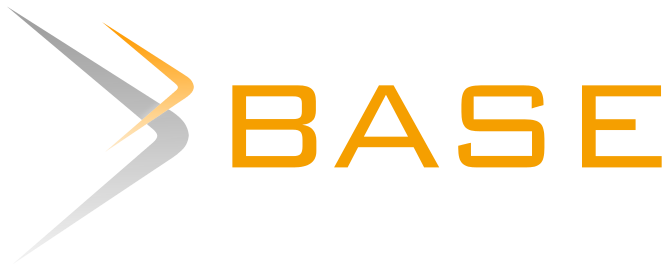Assessing the efficiency of supply chain processes in the palm oil sector
DOI:
https://doi.org/10.52300/jsm.v14i1.22239Keywords:
SCOR model, supply chain efficiency, palm oil industry, asset management, operational performanceAbstract
The palm oil industry remains a vital sector in Indonesia’s economy, significantly contributing to national exports and regional development. However, operating in geographically challenging areas like Kalimantan presents logistical and sustainability obstacles that demand adaptive supply chain strategies. This study aims to evaluate the supply chain efficiency of PT Triputra Agro Persada from 2019 to 2023 using the SCOR (Supply Chain Operations Reference) model, which encompasses five performance dimensions: reliability, responsiveness, agility, cost, and asset management. A quantitative descriptive-analytical method was used, supported by secondary data obtained from internal company records. The analysis shows fluctuating performance across years, with Perfect Order Fulfillment (POF) reaching 101.69% in 2019, declining sharply in 2022 to 65.30%, and recovering to 92.69% in 2023. Order Fulfillment Cycle Time (OFCT) remained relatively stable, although it slightly increased in 2023. Agility metrics improved in 2022 but weakened again in 2023 due to increased demand. The most cost-efficient year was 2022, although logistics costs rose in 2023. Meanwhile, Cash to Cash Cycle Time (C2C) improved significantly over the five-year period, indicating better asset management. The results suggest that while PT Triputra Agro Persada has achieved notable gains in supply chain performance, continued investment in technology, stakeholder collaboration, and sustainability initiatives is essential. Strategic recommendations include enhancing logistics through digital tools, strengthening inter-unit coordination, and optimizing asset utilization. This research contributes insights for palm oil companies operating in similar remote areas to balance operational efficiency with sustainability. Future studies are encouraged to integrate qualitative data and assess broader supply chain ecosystems.
Downloads
References
APICS. (2022). SCOR: Supply Chain Operations Reference Model. APICS Supply Chain Council.
Christopher, M. (2021). Logistics & supply chain management (6th ed.). Pearson Education.
Chopra, S., & Meindl, P. (2021). Supply chain management: Strategy, planning, and operation (8th ed.). Pearson.
Dewantara, R., & Giovanni, J. (2023). Analisis Peramalan Item Penjualan dalam Optimalisasi Stok Menggunakan Metode Least Square. Krisnadana Journal, 3(1), 59-66.
Dewi, L. A., & Gorda, I. N. (2022). Digital supply chain transformation in palm oil: A SCOR-based analysis. Jurnal Sistem Logistik, 13(2), 122–134.
Elkington, J. (1997). Cannibals with forks: The triple bottom line of 21st century business. Capstone.
Firmansyah, A. (2021). The impact of smallholder partnerships on palm oil supply chain stability. Jurnal Ekonomi Hijau, 5(1), 45–56.
Hair, J. F., Hult, G. T. M., Ringle, C. M., & Sarstedt, M. (2021). A primer on partial least squares structural equation modeling (PLS-SEM) (3rd ed.). Sage.
Handayani, R., & Astuti, D. (2023). Infrastructure and logistics performance in Indonesian palm oil supply chains. Indonesian Journal of Business Research, 8(1), 30–44.
Hasibuan, A. (2021). Real-time monitoring and its impact on palm oil mill productivity. Jurnal Agroindustri Modern, 6(2), 88–97.
Heizer, J., & Render, B. (2020). Operations management (12th ed.). Pearson.
Kusnadi, A., & Nugraha, T. (2025). Enhancing supply chain agility with AI in palm oil mills. Journal of Sustainable Agribusiness, 7(1), 67–81.
Kusuma, D., & Lestari, A. (2023). Digital mapping for sustainable palm oil logistics. Journal of Agribusiness Technology, 11(3), 102–115.
Lo, C. W. (2021). The role of IoT in reshaping agricultural supply chains. Journal of Smart Systems, 9(4), 187–198.
Munthe, I. A. P., Syamsudin, A., & Giovanni, J. (2024). A SWOT Analysis for Enhancing Port Operations at Sukamara. JSM: Jurnal Sains Manajemen, 13(1), 32-38.
Nugroho, S., & Wijaya, A. (2022). Strategic cost reduction in Indonesia’s palm oil supply chain. Jurnal Logistik Nasional, 10(2), 134–145.
Putra, A. R., Mulyadi, E., & Syafri, M. (2022). Evaluating SCOR-based performance in palm oil companies. Supply Chain Management Journal, 14(1), 55–67.
Putri, R., & Winarto, H. (2022). Blockchain-based traceability in Indonesian palm oil supply chains. Jurnal Teknologi Agroindustri, 13(1), 73–85.
Rachmawati, R., Kurniawan, F., & Yulia, N. (2021). Social sustainability in palm oil supply chains. Journal of Rural Development Studies, 9(2), 101–114.
Sawitri, N., & Fathihani, Y. (2023). Using precision agriculture for sustainable palm oil production. Journal of Environmental Agribusiness, 15(3), 120–133.
Setianto, T., Harinie, L. T., Syamsudin, A., & Giovanni, J. (2025). Implementation of Material Requirements Planning for Raw Material Inventory Control in Home Industry Palangka Raya. JURISMA: Jurnal Riset Bisnis & Manajemen, 15(1).
Seuring, S., & Müller, M. (2020). From a literature review to a conceptual framework for sustainable supply chain management. Journal of Cleaner Production, 123, 299–312.
Suryani, T., & Wijayanti, I. (2023). Implementation of SCOR model in improving palm oil distribution performance. Jurnal Sistem dan Strategi Logistik, 11(1), 89–101.


